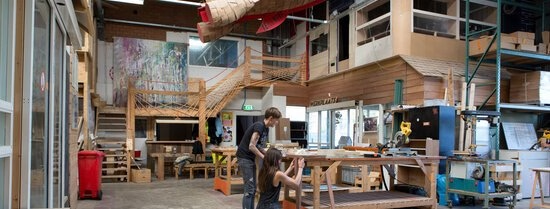
Research Projects
This NWO-funded VIDI project studies the potential of local craftsmanship and making practices to support a shift towards greater sustainability in urban economies, at a time when the climate crisis and the ongoing global pandemic challenges cities around the world to find more circular and localised forms of manufacturing and consumption.
Making things, crafting and working with one’s hands is enjoying renewed attention, as seen in the growth of makerspaces in cities around the world. Fairs and markets selling locally and handmade objects are also gaining traction. Old skills and techniques are given new life, from making and repairing chairs, to craft beer and leather goods manufacture. Cities more often mentioned in the context of industrial decline – are now seen as spearheading a grassroots movement reclaiming manual work, building on their legacies of skills and know-how and working class ethos. But to what extent does making have the potential to tackle two of cities’ most pressing concerns: renew their economy by building on their unique assets and making them more ecologically/environmentally sustainable?
Taking a European comparative approach, this project uncovers how the practices of making and crafting can be harnessed by cities to support their sustainable transitions.
The main research question is: how is making articulated, safeguarded, and valued in post-industrial cities?
Specifically the project aims to study:
1) how is the urban legacy of craft skills put to work in new forms of local (digital) making, reuse and recycling?
2) what are the resource and material implications of circular making?
3) what policy options and consumption practices harness local making?
The project generates new theory on making as a pillar of more sustainable urban economies. By taking an internationally comparative approach across different institutional settings, this project looks at the historical differences and present-day institutional settings shaping outcomes.
